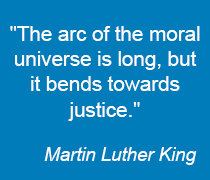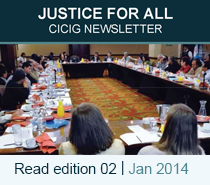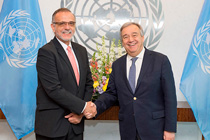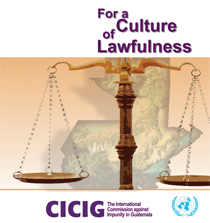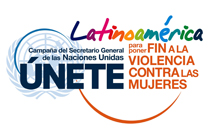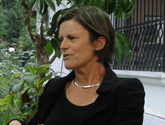 Guatemala, December 17, 2009. Ending her tour as Swedish Ambassador to Guatemala, Ms. Ewa Werner Dahlin, a woman who knows this country very well and with a view as sociologist and expert in political science, bet that justice could be strengthened.
Guatemala, December 17, 2009. Ending her tour as Swedish Ambassador to Guatemala, Ms. Ewa Werner Dahlin, a woman who knows this country very well and with a view as sociologist and expert in political science, bet that justice could be strengthened.
After 16 years of absence, Ewa, as her friends call her, is returning to Stockholm, Sweden, the city where she grew up and has lived most of her life, and where she will rejoin her family before leaving for her country home on Gotland Island for a well-earned rest.
Ms. Werner knew that Swedish aid to Guatemala should focus on improving justice in the country, firstly because that is required by her country’s foreign policy guidelines and, secondly, because Guatemala was not a country unknown to her. Ten years ago, after the signing of the Peace Accords, the Ambassador noticed that the theme of human rights was very new among Guatemalan society. According to Ms. Werner, “Society was very afraid. Whoever talked about human rights was considered to be a communist,” and this impeded the enforcement the people’s rights. “That has changed. I believe that Guatemalan society accepts that there are human rights problems” and that the fight for these rights is very important, is gaining importance, and has gained even more importance thanks to the support of society. “We saw this in everything that surrounded the Law on Nominating Committees and especially in the elections of the Supreme Court. That was an opportunity to fight for human rights,” said Werner.
“Guatemala cannot turn back. This is- I believe- one of the most solid changes and advances since the Peace Accords, if we take that as the starting point. The greatest challenges are impunity and social injustice. It is incredible. Although the Peace Accords were very broad agreements than included social aspects, not even a small part of them has been honoured: the right to education, the right to health, equality between women and men and the rights of indigenous peoples have all been ignored. Two weeks ago I visited the interior of the country for the last time and my conclusion is that there really is an apartheid system in place. That is a very strong statement, but I think it should be said. In Totonicapán, for instance, the people live in extreme poverty, live in a sort of apartheid, not the kind that existed in South Africa, but there is total discrimination there. The indigenous peoples, which are the majority of the population in Guatemala, lack the political will to enter into social pacts, to develop proposals that could create a modicum of statehood.”
To Ewa Werner, it appears that Guatemala has not entered the era of globalization: “many people have told me for many years that I have to understand that Guatemala is a very conservative society, but I know other societies that are very conservative in the cultural sense, but they have- however- a social development policy that includes equity. I speak of countries like Peru and Bolivia, which have certain features similar to Guatemala and are countries that I know, and there is no comparison.”
Her Character
“The other day the Culture Minister invited me to take part in the Maya ceremony of the ‘nagual’ chart. It was very interesting, because it highlights a person’s negative and positive sides. It said that I am very strong and very persistent- some would say stubborn- but consistent with that idea, that I have the ability to see things that others don’t see and I really believe that that is true. Some call that intuition, but I know that intuition is a sum of life’s experiences and a little clear thinking also. On the negative side, I can be somewhat aggressive, depending on how you interpret aggressiveness, because it is not necessarily something negative, it means that you don’t give up but keep on insisting on a theme that is very important and that, I believe, also describes me.”
In your work as an ambassador, and in a country as complex as Guatemala, those qualities must have greatly helped you to have a vision, to know how and where that cooperation should be focused.
“It has not been easy, but I believe that they have always helped me. There are basic conditions, such as the fact that people are entitled to justice and that women are equal to men. Those are simple but powerful truths if you use them as engines.”
Could we say that Swedish cooperation is headed in that direction?
“Yes. I have the guidance of Swedish foreign policy and the priorities set by that foreign policy, which also include cooperation. I have their full support and also that of the policies of the European Union. Here in Guatemala, people talk a lot about duality, because that is a concept- very strong- in the Maya culture. This concept helps me think about Guatemala and how to draw up a balance of the country, because it is a very beautiful country. The beauty of the blue sky- which is magical- and on the other hand, the fires of injustice and impunity burn really hot. Those two opposite poles are my balance of Guatemala.”
Sweden’s support to Guatemala is made through CICIG?
CICIG is a tool that must be supported. The Peace Accords were a crucial step forward to continue understanding, interpreting and especially proposing things for Guatemala. After the Accords- and still today- there was impunity, for which I use the term “historic impunity”, but I’d like to go back to the progress made: there has been major progress lately because there have been important and historical trials against members of the armed forces and paramilitary groups who are guilty of massacres and disappearances. And this is the first step in putting an end to historic impunity. That is very important. I believe that a link must be made between historic impunity and present-day impunity, as one of the most blatant manifestations of the absence of the rule of law. And from that comes the basic idea that we hope that the extension of CICIG’s mandate will result in certain trials and that reports on parallel organized crime structures will be published, but, at the end of the day, the ultimate result should be that a rule of law State will begin to be created.
What message would you send your international cooperation colleagues regarding CICIG’s work?
Continue providing support on several fronts. By that I mean financial, political and technical support and solidarity. This also applies to CICIG’s counterparts. Continue the dialogue with country’s security and justice system institutions in order to, like CICIG, reinforce those institutions so that when the Commission’s mandate comes to an end they will have been strengthened as much as possible. And at the international level, as members of the United Nations, GRULAC, the OAS and the European Union, our role is to support and strengthen the Commission’s work, which has an international influence.
Ewa Werner Dahlin, Ambassador
Sociologist, expert in political science, with journalistic training. Her career has focused on international cooperation. She has also done academic research on social science issues, including women’s rights in the labour market.


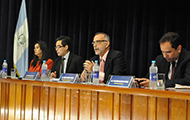
 Guatemala, December 17, 2009. Ending her tour as Swedish Ambassador to Guatemala, Ms. Ewa Werner Dahlin, a woman who knows this country very well and with a view as sociologist and expert in political science, bet that justice could be strengthened.
Guatemala, December 17, 2009. Ending her tour as Swedish Ambassador to Guatemala, Ms. Ewa Werner Dahlin, a woman who knows this country very well and with a view as sociologist and expert in political science, bet that justice could be strengthened.